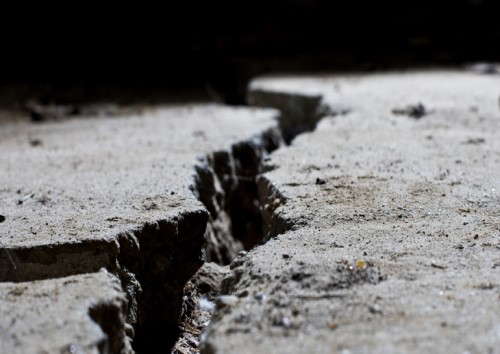

After severe hurricanes made landfall in the southern US this year and wildfires continue to rage in California, it’s easy to forget that there’s a natural catastrophe risk with the potential to demolish homes and businesses, and lead to massive losses lying low right under Canadians’ feet. Those on the west coast are already prepared for an earthquake should it strike – after all, the Great BC ShakeOut, British Columbia’s biggest earthquake drill presented by the Insurance Bureau of Canada (IBC) and the BC Earthquake Alliance, only took place a month ago.
Eastern Canada is a different story altogether. Awareness in provinces like Quebec and Ontario around earthquakes is “severely lacking,” even as their loss-inflicting potential is huge, according to a Swiss Re report, “Earthquake Risk in Eastern Canada: Mind the Shakes.”
“While there have been earthquakes in eastern Canada in the past, they happened long ago so aren't as top of mind for people living in the region,” said Balz Grollimund, head of the treaty underwriting team for Canada at Swiss Re. “Also, earthquakes in the east tend to be of lower magnitude than in the west. However, the difference in eastern Canada is that seismic activity is highest in the most populated regions, thus increasing their loss-inflicting potential."
In Quebec alone, 70% of the population resides in seismic regions, and Montreal, Ottawa and Quebec City are all located in the most earthquake-prone regions in the east, according to Swiss Re.
Another key difference between the coasts is a level of preparedness for a ground-shaking event. Take-up rates for earthquake insurance in eastern Canada fall at a measly 3.4% of all homeowners, compared to 65% in Vancouver and Victoria in BC. Households in Quebec and Ontario are thus heavily exposed to uninsured losses, despite the clear damage that earthquakes can cause. If a magnitude 7.3 earthquake were to occur in the Charlevoix seismic zone, the total economic loss from the earthquake would be around 8% of Quebec’s GDP, or $30 billion, according to Swiss Re’s estimates, which take into account residential losses as well as damage to commercial and cultural property, infrastructure, and indirect losses.
“Any earthquake affecting urban centres is a big disruptor to the economy,” said Grollimund, pointing to the 2010/2011 earthquakes in New Zealand. “That region has been as well prepared as you could be because New Zealand is very earthquake aware. They have a very big earthquake insurance take-up rate, but yet once an earthquake hit that city centre, in the case of Christchurch, it had to be closed because of worry of collapsing buildings. You essentially halt the entire business activity in the central business district.”
A number of businesses do purchase earthquake insurance in Quebec, though it still amounts to less than do so in BC, added Grollimund, but it’s the homeowners who are taking their chances with this natural catastrophe.
“One factor is definitely lack of risk awareness, so nobody has really seen any dramatic earthquakes in Quebec and why would you worry about something that you haven’t really seen happen in your own lifetime,” he explained. “Another one could simply be that homeowners are not aware of the shortcomings of their current policy. They assume the policy covers everything that could happen, so earthquake must be included.”
The Canadian Association of Direct Relationship Insurers conducted a survey that revealed approximately 58% of Quebecers inaccurately think their fire policy covers earthquake damage. Many homeowners might also assume that the government will help them rebuild should the unlikely event occur, while others feel that the earthquake endorsement, which can add a few hundred dollars to a policy each year, is just too expensive. Brokers can sometimes share this sentiment.
“That awareness, I think, translates also to a lack of awareness of brokers,” said Grollimund, highlighting that, in California, some brokers advise homeowners against buying earthquake insurance because they’d never seen a claim from the event, and it increases the price of a premium. Earthquake insurance can likewise make a broker’s offering less competitive because of that additional cost.
“The way to address that is by raising awareness among all key stakeholders – among homeowners, but also among brokers,” said Grollimund. “I think another really important aspect, which we highlight in the report, is for the government to make it very clear what they would or would not pay in the aftermath of an earthquake so that there’s no wrongful expectation that the government would step in in the case of an earthquake. That again would put a bit more weight on brokers also to recommend an earthquake endorsement to their clients.”
